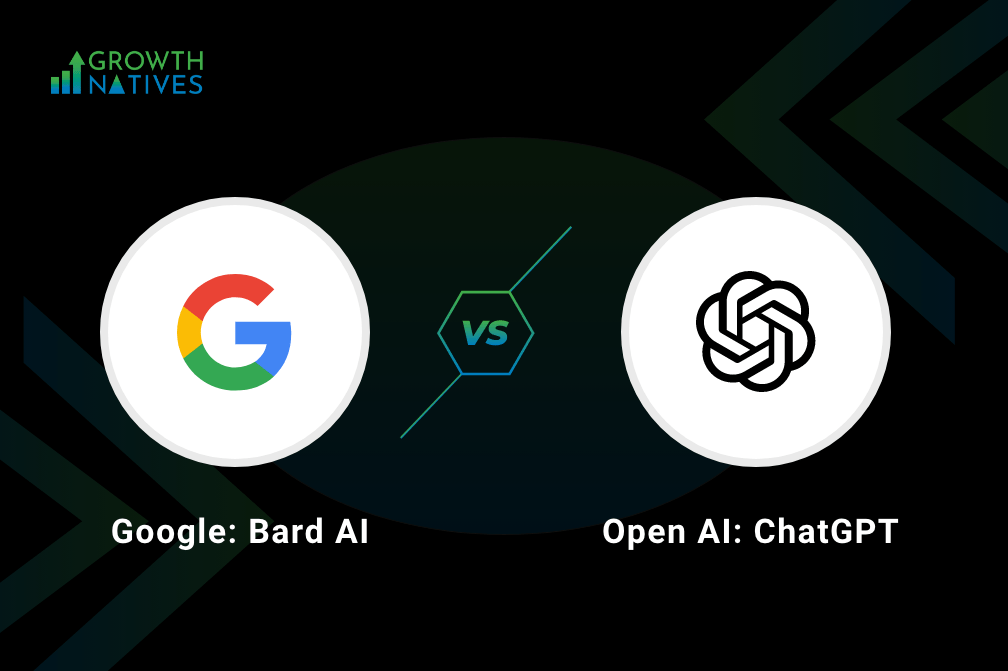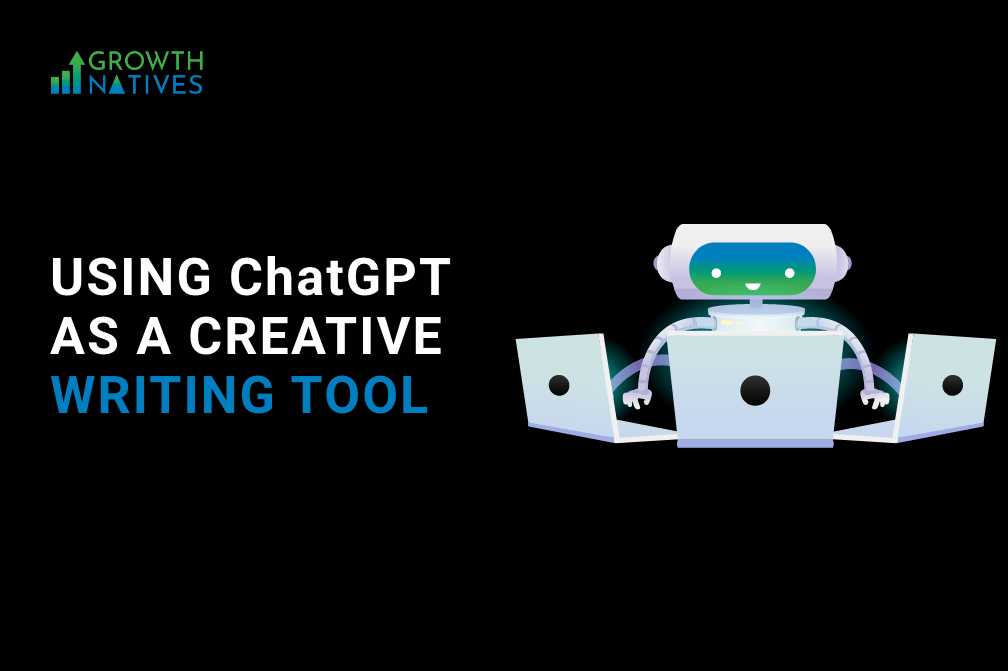
ChatGPT Vs Bard: The Differences and the Early Verdict
By Sakshi Arora
Feb 10, 20235 min read
OpenAI's ChatGPT has been the most debated topic in the tech world. Since its launch, the AI-powered chatbot has been clocking interesting numbers. It touched a million users within the first five days and currently processes 10 million daily queries.
It has reached 100 million users in two months, and the numbers keep growing. Users have found creative ways to leverage this AI-powered world, from writing poems to creating content and even completing homework. Its cheerleaders have called it the "Google Search killer."
The bosses at Google's headquarters in Mountain View took this threat seriously. Not in the mood to give up their dominant position in the market, they have come up with their own conversational AI service, the Bard.
There have been early hiccups due to this hastened launch, with Alphabet Inc. losing $100 billion in the market cap as the chatbot came up with an incorrect answer in the promotional video! Nevertheless, the search engine giant will surely fix the bugs and give ChatGPT a run for its money.
Interestingly, Microsoft has put its hat behind ChatGPT in a bid to take on its long-term rival, Google, and this will make the AI-powered generative content space even more interesting in the days and months to come. It brings us to the most important part of this piece – what are the differences between Google Bard AI and Chat GPT? Let's find out.
Difference Between Google Bard AI and ChatGPT
Both Bard and ChatGPT are language-based conversational AI models. From a user perspective, they can generate content based on basic queries. However, there are differences in how they generate responses and their limitations. Here are the key differences between OpenAI's ChatGPT and Google's Bard -
1. Language
ChatGPT is powered by the GPT (Generative Pre-Trained Transformer – 3) language model, which trains and feeds the large dataset. All responses generated using this tool would be based on the dataset or text blended into the code.
To improve its generative content, ChatGPT regularly collects data from its users, which is used to train and fine-tune the language model. Google's Bard draws its power from the patented Language Model for Dialogue Applications (LaMDA). It draws data from the Internet and has access to more data.
2. Response Generation
There is a fundamental difference in the way these two chatbots generate information. As you already know, ChatGPT doesn't use the Internet to generate responses. A large data set that runs into 570 GB or 300 billion words powers its responses.
ChatGPT generates all its responses from the information available in this data set. On the other hand, Google relies on its core strength, the search engine, to generate responses. It doesn't generate responses from a static data set but uses publicly available information to generate answers to queries.
3. Relevance of Information
ChatGPT's knowledge set is limited to information available till 2021. Open AI had stated that the knowledge base was limited to 2021, and they plan to update it with time. We don't have clarity on whether the knowledge base has seen any updates since its launch.
Hence, all responses generated using ChatGPT have limited knowledge until 2021 and can't be used to generate responses on current topics. On the other hand, Google uses the Internet to generate responses; hence, its response is technically more relevant and up-to-date.
4. Limitations
Both these AI-powered platforms have their limitations regarding the quality of responses they generate. However, these limitations are different thanks to their distinct approaches to data collection. Since ChatGPT relies on its dataset for generating responses, its output is limited by data biases.
Its responses are generated based on the knowledge of that subject till the cutoff date. Google Bard, on the other hand, is limited by Internet biases. Since it generates a response using publicly available information, it can promote fake news and narratives.
What is The Early Verdict?
ChatGPT has been open to users and has been thoroughly tested by users in the last three months. Though it is yet to become an alternative to human-generated content, it has found its use as a research tool for content creators.
Bard is available only to a select group of testers, and people have yet to try this tool. It has had its problems, as we had stated earlier. The verdict isn't out yet, but Bard needs to be good for Google to retain its position as the world's most trusted research and information platform.
Final Thoughts
As mentioned above, ChatGPT and Bard have their share of differences based on how they generate content. Both these AI-powered tools have ushered in a new era of generative content, and we expect the world to change for content creators and the marketing industry.
We are in the early days of generative content, with ChatGPT taking baby strides while Bard is still unavailable for public use. Google is testing this tool thoroughly before it is made available for users and the API version releases for businesses.
As a business, you need to embrace Artificial Intelligence in your marketing campaigns, and the latest developments signal the AI era has truly arrived. At Growth Natives, we have used AI-powered tools to power marketing campaigns. If you wish to leverage the power of AI, set up a consultation with our team by emailing us at info@growthnatives.com.



